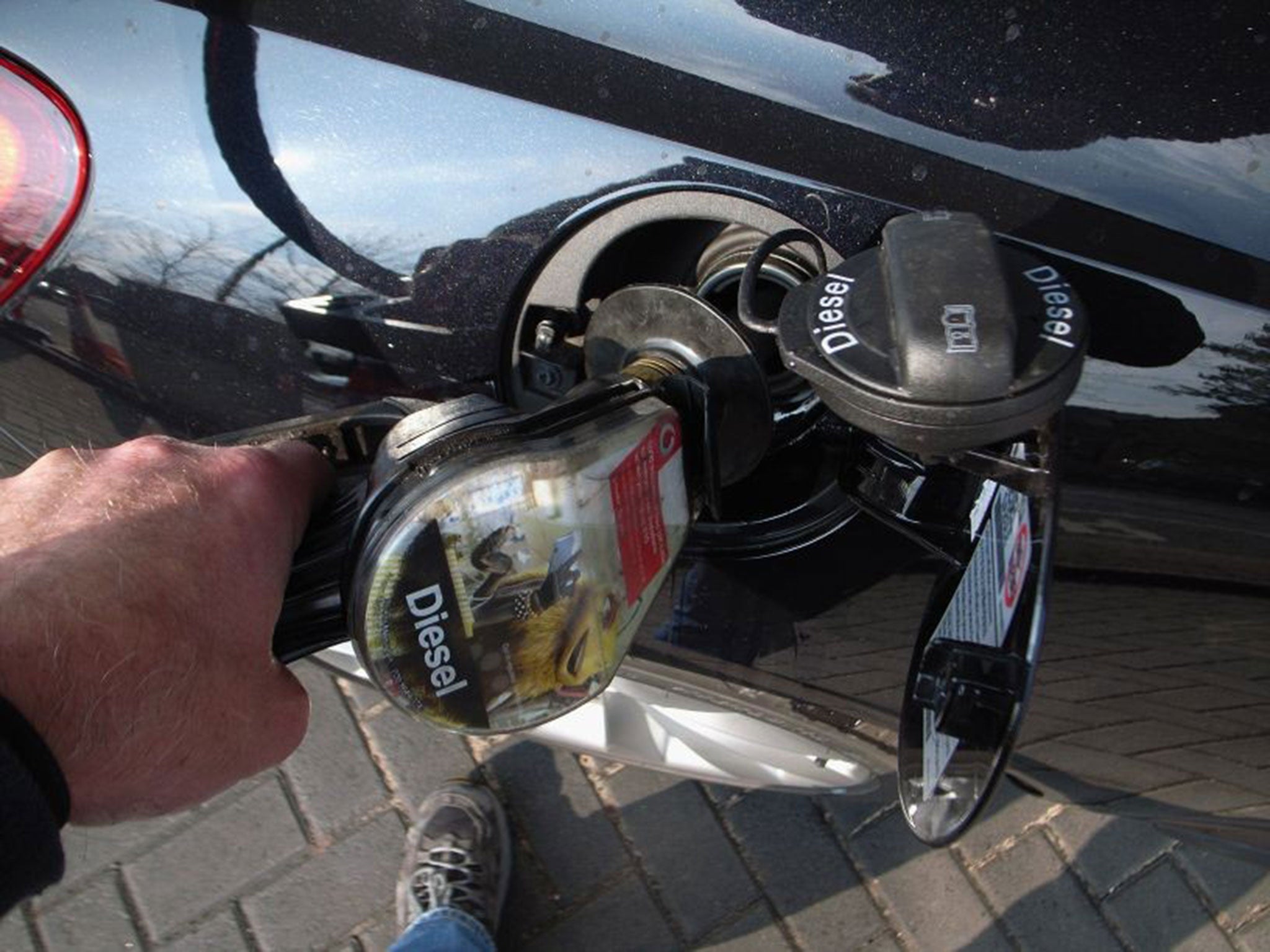Boris Johnson's war on diesel
11 million cars here run on diesel. It's seen as a greener alternative to unleaded petrol. So why is Boris Johnson on a crusade against the black pump? Sam Philip investigates

Boris Johnson has declared war on diesel, with the London Mayor proposing to squeeze an extra £10 from the driver of any diesel car in the Congestion Zone. Johnson's crusade against the black pump heads a bid to improve the quality of the capital's air, with campaigners claiming that some 51,000 Londoners have died prematurely of respiratory symptoms linked to air pollution since the mayor took office in 2008.
That diesel is now an environmental bad-boy might come as a surprise to the millions of Britons who have, over the last decade, converted from petrol to diesel on grounds of economy, efficiency and environmental do-goodery. In the first half of 2014, Britons bought 643,000 diesel cars, with petrol sales standing at 621,000 (alternative fuel vehicles, including hybrids and electric vehicles, registered just 23,300 sales).
That's a vast rise. At the turn of the millennium, diesels represented barely 15 per cent of the new cars sold in the UK. Diesel's spike in popularity can be laid at the door of the DVLA, which has, for the last dozen years, effectively offered tax breaks to diesel buyers in the form of Vehicle Excise Duty.
The cost of your tax disc was traditionally calculated by engine size but, since 2001, it has been pegged against a car's emissions of carbon dioxide (CO2), a major contributor to global warming. Diesel cars cough out less CO2 per kilometre than their petrol-powered alternatives – not least because there's more energy packed into a litre of diesel than of petrol – and the policy has proved effective at reducing the CO2 footprint of Britain's car population.
The problem is that CO2 isn't the only nasty stuff to spew from the rear of runabouts. Diesel engines, despite recent improvements in filtering technology, emit higher level of nitrous oxide (NOx) and particulates, sooty matter with little impact on global warming but, potentially, a great deal of impact on the lungs of those in the local area. And it's particulates that have got up Boris's nose. He could blame the Germans. That Britain has converted so fervently to diesel can't solely be blamed on the DVLA, but also the Teutonic capacity for progress. Back in the day it was easy: if you were a farmer or trucker, you endured diesel and everyone else bought petrol. Diesels were, until recently, grumbly and slow-witted, only fit for tractors and long-distance lorries. But giant leaps in turbocharging and direct injection technology, led by Volkswagen and BMW, have made modern turbodiesels very nearly as smooth and perky as their petrol cousins. They'll even start on a cold morning without the clatter of a tool chest plunging down a flight of stairs. Which is why diesel is no longer the preserve of the farmyard. Even luxury sports car brands such as Porsche have embraced the black stuff and a diesel supercar may be imminent.
Rupert Stadler, chairman of Audi, recently hinted that the next generation of his firm's R8 – a two-seater, low-slung, wedgy sports-thing much beloved of London's banking fraternity – could be offered with diesel power, a move likely to cause Johnson a mild aneurism.
So what's the alternative? Aside from bicycles, Johnson has stuck his chips on electric vehicles (EVs), which remain firmly Congestion Charge exempt. But though it's true that EVs – which, running on battery power alone, generate no local emissions (though the power station producing the electricity is another matter) – make sense for city-dwellers, they struggle elsewhere. A diesel family hatch can manage an easy 500 miles on a tank of fuel, but even the most efficient modern EV will struggle to exceed 100 miles or so between charges, a challenge when ferrying your family to Fort William on holiday. Especially because, whereas refilling your car with diesel takes precisely the time of the average bathroom-and-Ginsters service station break, fully recharging an electric car requires at least a couple of hours of extension-cord boredom.
Alas, Knutsford services doesn't yet offer sufficient distraction to sustain humans for that length of time.
Sam Philip writes for 'BBC Top Gear Magazine'
Join our commenting forum
Join thought-provoking conversations, follow other Independent readers and see their replies
Comments
Bookmark popover
Removed from bookmarks